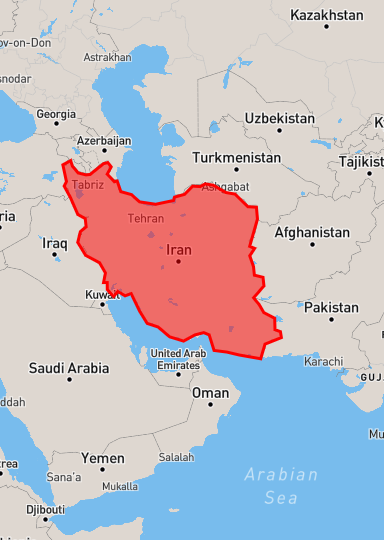
ProtectDefenders.eu partners are extremely concerned by the sentencing of women human rights defenders in Iran:
- On 13 February 2021, two women human rights defenders Najmeh Vahedi and Hoda Amid were informed of the verdict issued by the Branch 36 of the Tehran Court of Appeals on 2 February 2021. The appeals court ruled to uphold the primary ruling of Branch 15 of the Revolutionary Court of Tehran, issued in late October 2020, sentencing Hoda Amid to eight years in prison whilst Najmeh Vahedi was sentenced to seven years. Hoda Amid is a lawyer and woman human rights defender, who had also played a prominent role in educating Iranian women of their rights. The two women human rights defenders ran educational workshops together on “terms of marriage” to educate women on their marital and familial legal rights in Iran. Najmeh Vahedi is a women’s rights defender and sociologist, currently studying for her postgraduate degree in women’s studies. She has been active in raising awareness on social issues in the field of women’s rights, especially the value of women’s work in the home. She has been organising and running educational workshops on « terms of marriage » to educate women on their marital and familial legal rights in Iran.
- On that same day, woman human rights defender Zahra Mohammadi was informed that Branch 4 of the Court of Appeal of the Kurdistan Province sentenced her to five years in prison for her human rights and cultural activities and membership of cultural associations in the Kurdish region of Iran. Zahra Mohammadi is the director and a founding member of the Nozhin Socio-Cultural Association, which was established in 2011 and certified by the Iranian Ministry of Interior in 2013. The association raises awareness of the legal and cultural rights ethnic groups are entitled to exercise in Iran and has been active in promoting cultural education through the organisation and holding of Kurdish language classes in various cities in the region. The association also educates people on environmental protection.
Iran is ranked 173 in the 2020 World Press Freedom Index and has been one of the world’s most repressive countries for journalists for the past 40 years. State control of news and information is unrelenting and at least 860 journalists and citizen-journalists have been imprisoned or executed since 1979. The Islamic regime exercises extensive control over the media landscape and its harassment of independent journalists, citizen-journalists, and independent media has not let up. They are constantly subjected to intimidation, arbitrary arrest, and long jail sentences imposed by revolutionary courts at the end of unfair trials.


